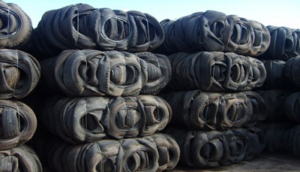Global tire-derived fuel (TDF) market forecast at $430 million by 2025
Dublin, Ireland – The global tire-derived fuel (TDF) market is expected to reach a valuation of US$430.3 Mn by the end of 2025 according to ResearchAndMarkets.com
The amount of waste generated is directly proportional to the development of a country. The monumental improvement of economic conditions in developing countries has therefore resulted in the generation of tire scraps. Needless to say, even developed parts of the world are adding to the piles of tire scraps. The report indicates that a billion tire scraps generated annually.
Tire-derived fuel is often used as a supplemental fuel at cement and paper & pulp facilities. In recent years its demand is seen a steady rise as TDF improves boiler efficiency, reduces carbon emissions, and cuts down fuel costs. As end-use industries regain momentum in the post-COVID-19 economy, analysts anticipate that they will stoke the usage of TDF as well. As of 2019, the cement industry held a 50% share in the global tire-derived fuel market. The publisher predicts the trend will continue as construction activities make a comeback in full swing.
North America is currently an extremely prominent market for tire-derived fuel, primarily owing to the abundant supply of end-of-life tires. The US Tire Manufacturers Association is one of the many bodies working toward maximizing and capitalizing on scrap tire value, while also reducing the debilitating impact of the automotive industry on the environment. This, supported by the rising popularity of electric vehicles, creates a lucrative scenario for TDF facilities and players.
Asia Pacific also serves as a profitable market for tire-derived fuel thanks to the ever-growing presence of leading automobile companies and ongoing expansions of their manufacturing plants in the region. The cement manufacturing industry is perhaps the largest consumer of tire-derived fuel in the Asia Pacific, with companies using whole tires as well as TDF as a supplemental fuel in cement kilns.

